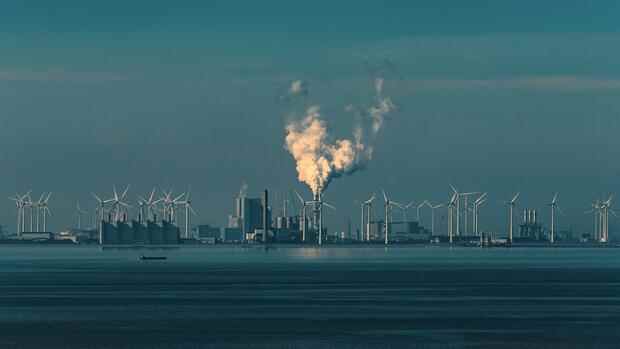.
Europe must change its energy policy on many levels if it does not always want to react too late to gas price crises.
(Photo: dpa)
The insidious thing about gas price crises is that their causes lie in the past and cannot be eliminated quickly. The causes of the current high prices can be found in accidents in Russia, in the global economic upswing and also in the fact that European retailers misjudged the effects of these developments. Summer would have been the time to fill the gas storage tanks. That didn’t happen because the prices were high – they are just a lot higher now.
Testing and observation are now being carried out in Brussels. Perhaps there will be market manipulation after all that can be turned off, or speculation that can be contained. However, hopes are limited. After all, the price is high worldwide, the scarcity is more painful in China and the UK than in the EU.
Top jobs of the day
Find the best jobs now and
be notified by email.
One thing is clear, however: this crisis must be used. Here are nine suggestions.
- First, wind, solar and water power must be massively expanded. This not only advances climate and energy policy. It not only makes Europe more independent from Russia and the Arab states. It also makes electricity cheap because once the systems are built and connected, they produce at minimal cost. Cheap electricity would be a real competitive advantage for European industry.
- Second, more needs to be invested in efficiency. This affects companies as well as households, where much too much expensive heat still escapes through cracks in the window.
- Thirdly, the EU states can join forces to buy gas together in order to counter the dominant supplier on the market, i.e. Russia. The energy ministers want to discuss this in the coming week.
- Fourth, they also want to talk about common gas storage facilities in order to be able to cushion fluctuations in supply.
- Fifth, one could go even further with the storage idea. Gas is so attractive because the output of the relevant power plants can be quickly ramped up and down. This could also be achieved with pumped storage power plants or by using the batteries of electric cars to service peaks in electricity demand. There are technical concepts for this, but no political proposals yet.
- Sixth, what is not on the agenda so far is the completion of the internal market for gas. That would mean better connecting the networks of the Member States – through more pipelines and more efficient transfer points. That would make it easier to access reserves in other countries and could thus mitigate fluctuations in prices. Investments are not lost with the energy transition if the pipelines are built in such a way that they can also transport hydrogen.
- Seventh, it is similar with the power lines: here there are no routes across Europe that would bring the electricity to where it is needed.
- Eighth, the EU could again insist that the energy suppliers set prices with their suppliers on a longer-term basis. In the purchase contracts, there is typically a pre-determined part and a fluctuating part depending on the current market price. In order to promote competition and make gas cheaper, the EU regulation recently aimed at prices that develop in the short term. A new balance is needed there.
- Ninth, social redistribution should become the rule. If energy prices rise, it must not drive anyone into poverty. But if states react spontaneously and driven by fear of protests, then they often only have the means of suspending taxes. It’s quick and solves the problem. But it creates another problem, namely that the high prices no longer ensure low consumption and new investments. If the states signal that they are protecting consumers from high energy prices, they are damaging climate protection. If instead they support all poor households with the same amount, they protect them from energy poverty and leave the incentive to thrift in place. The better prepared something like this is, the less pressure there is to resort to other means.
More: How the gas panic is harming wind power operators
